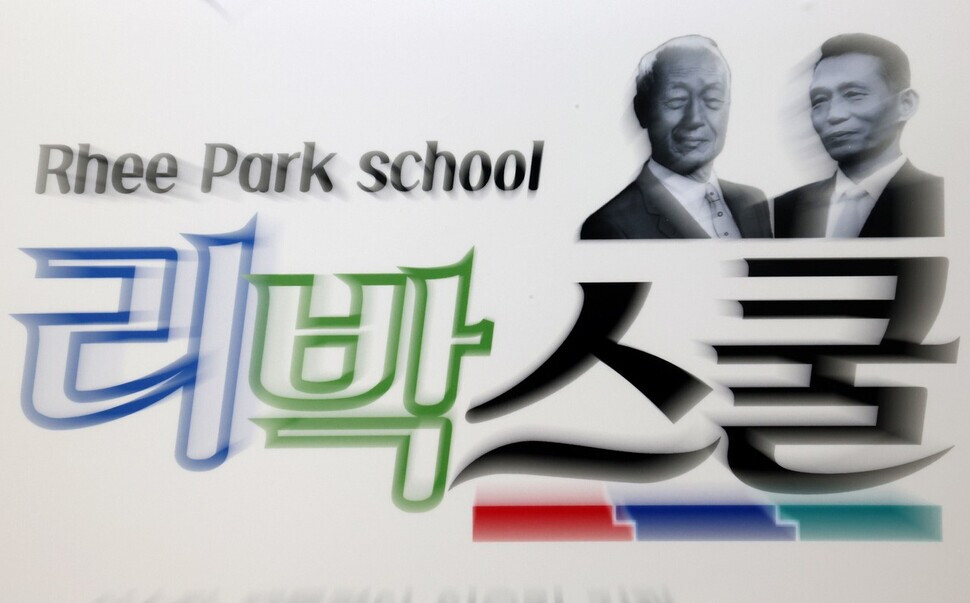
Concerns are mounting over the educational content of "Reebak School," which has recently become a hot topic in the education sector. While it champions innovative education, a closer look at its reality inevitably raises questions about whether this truly represents genuine education for our children's future. This column expresses deep concern about Reebak School's absurd educational content and the future our children may face as a result.
Education That's Beyond "Absurd" to "Dangerous"
Reebak School's educational approach gained attention for completely breaking away from the traditional framework of school education. However, a detailed examination of its content reveals dangerous attempts that go beyond mere "breaking the mold" in many aspects.
Above all, the most concerning issue is the indiscriminate introduction of unverified pedagogical methods. There's an undeniable impression that, while neglecting the fundamental academic achievement crucial in formal curricula, the school forces ambiguous curricula based on specific ideologies or philosophies. For example, some parents have raised suspicions that Reebak School attempts to instill specific religious beliefs or social ideologies in children. This is a serious problem that could violate freedom of religion and the principle of educational neutrality, harboring the risk of trapping children in a particular viewpoint rather than fostering their critical thinking skills.
Furthermore, another problem is the uniform application of educational methods without considering children's developmental stages and characteristics. There are criticisms that, under the guise of fostering creativity, children are either given excessive freedom or, conversely, exposed to an uncontrollable environment. For instance, some parents have complained that during class, children wander freely or engage in uncontrolled activities, disrupting the learning atmosphere and causing safety issues. Children grow at different paces and in different ways, yet Reebak School appears to force children into their educational philosophy rather than respecting this individuality. This disregards basic principles of child developmental psychology and can diminish children's interest in learning and hinder their potential.
Moreover, Reebak School fuels controversy due to a lack of transparency in its educational content. Specific curricula, learning objectives, and evaluation methods are not clearly disclosed, causing anxiety among parents. This goes beyond mere lack of information, raising concerns that a closed educational environment could lead to child abuse or inappropriate educational practices. Education is a public domain, and particularly for education targeting growing children, its content and process must be transparently disclosed and verified.
Is Our Children's Future Alright Like This?
The thought of the future of children educated at Reebak School fills one with unease. Modern society demands that children possess not only specific knowledge and skills but also the ability to cooperate with diverse people, solve problems, and adapt flexibly to change.
However, Reebak School's educational approach appears insufficient in fostering the basic social skills and critical thinking necessary for children to adapt to society and grow into healthy members. If children are instilled with only specific values in an isolated environment, they may feel disconnected from the real world after graduation and struggle to adapt. This could lead to serious social maladjustment and negatively impact interpersonal relationship formation.
Furthermore, the disadvantages that children who receive unverified education may face when advancing to higher education or entering society cannot be overlooked. If there's a lack of connection with the current education system, children are at risk of undergoing unnecessary trial and error or falling behind. For example, if Reebak School's unique curriculum does not help prepare for the CSAT (College Scholastic Ability Test) or internal school grades, children may find it difficult to enter their desired universities due to academic gaps with students from regular schools. This will ultimately prevent children from fully realizing their potential. This is not merely an academic problem; it could also limit career options or impede career development after entering society.
Education is the foundation that nurtures children's dreams and futures, but Reebak School's approach is inevitably criticized for potentially restricting children's future choices and suppressing their potential. True innovative education should help children achieve holistic growth and foster the capabilities to actively cope with a rapidly changing future society.
Education Is Not an Experiment
Education is a critical process that determines children's future and should never be treated lightly. Indiscriminately applying unverified educational methods under the guise of innovation is no different from a dangerous experiment on children.
Even now, Reebak School must transparently disclose its educational content and methods and listen to the legitimate criticisms and concerns of parents and experts. Educational authorities must take these issues seriously and consider active intervention to protect children's right to learn and be happy. The Ministry of Education should conduct a thorough investigation into the institution's curriculum, teacher qualifications, and student management practices, and if necessary, take appropriate administrative measures.
For our children to grow up healthy and embrace a bright future, society-wide attention and oversight of dangerous educational attempts like Reebak School are urgently needed. It is crucial to remember that children's education is not merely about knowledge transfer but a vital process of character formation, and a cautious and responsible approach must be taken.
[Copyright (c) Global Economic Times. All Rights Reserved.]



























